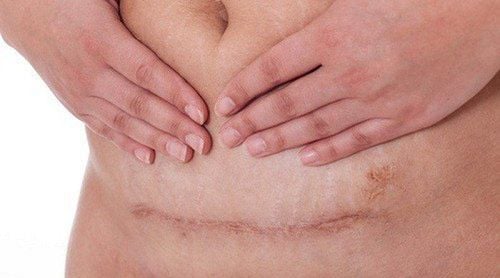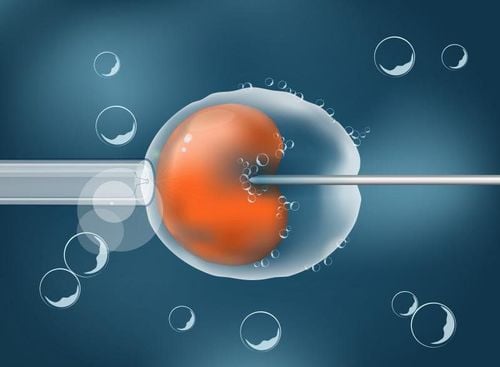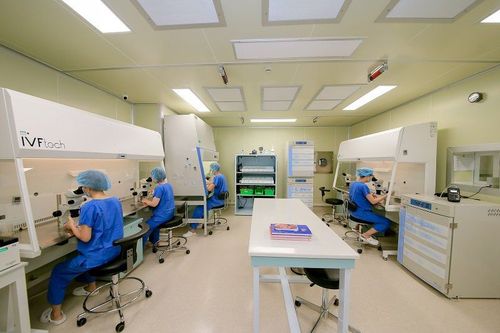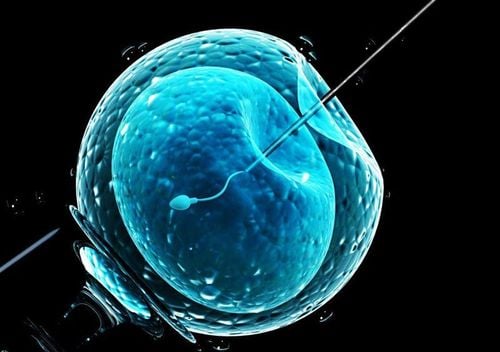This is an automatically translated article.
The low fertility in IVF may be due to the transparent membrane properties that are affected by culture under artificial conditions. The technique of supporting embryos escaping membranes has been applied, which helps to increase the implantation rate and pregnancy rate when performing in vitro fertilization.1. What is IVF?
In Vitro Fertilization (IVF) is a complex medical technique used to treat infertility, infertility or genetic problems related to sex.
Currently, this is the most effective medical method of assisted reproductive technology. In Vietnam, the technique of in vitro fertilization is applied for treatment to increase fertility for infertile and infertile couples.
This is considered a last resort for infertile and infertile couples after other methods of assisted reproduction such as drugs or artificial insemination have failed.
2. What is embryonic support?

Phôi thoát màng
After the egg and sperm are fertilized by IVF or intracytoplasmic sperm injection (ICSI), the embryo will be transferred to the uterus to implant and develop into a pregnancy. The outer envelope of the embryo is a transparent membrane (shingles).
In some cases, this membrane becomes abnormally firm or does not thin during embryonic development. This prevents the embryo from escaping and attaching to the endometrium for implantation. Based on that hypothesis, the technique of thinning or perforating the transparent outer membrane of the embryo was born, making it easier for the embryo to escape and implant in the uterus. The Embryonic Embryo Support technique improves the success rate of in vitro fertilization (10-15%).
Embryonic support has been practiced since the early 90s. This is a technique to thin or create a hole in the membrane of an embryo to improve pregnancy and implantation rates. According to the Practice Committee of the Society of Assisted Reproductive Techniques and the American Society for Reproductive Medicine (2005), assisted hatching may be of clinical benefit in those with poor prognosis such as: : failed IVF twice, poor embryo quality, old age. In addition, many studies showed benefits in increasing implantation rate as well as clinical pregnancy rate in subjects such as: embryo transfer, thick shingles, high basal FSH.
Regarding the method of implementation, in the past, a commonly performed technique to support the embryonic drainage is to puncture the shingles membrane with Tyrod acid solution. Although this technique has been reported to have a significant effect on pregnancy rates, it has many disadvantages, including the risk of damage to the cells beneath the shingles, premature herniation, and the requirement Strict execution time and workmanship of the performer. The newest and widely used technique in the world is the Infrared Laser Optical System, which is now an alternative technique that can overcome the obstacles of previous techniques.
3. In which case need to support the embryo to escape the membrane?
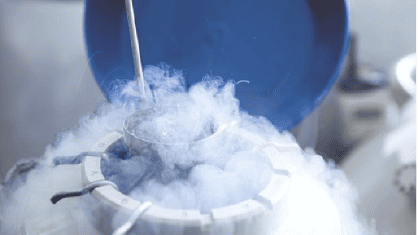
Phôi trữ lạnh
There are no clinical trials that have confirmed that assisted hysterectomy is beneficial for all groups of patients undergoing IVF cycles, although this technique is currently in widespread use. Currently, there are a number of cases that have been clinically confirmed that the pregnancy rate is greatly improved thanks to the technique of supporting embryos to escape membranes:
Cryopreserved embryos: Many studies have confirmed, the process of freezing and thawing Embryo freezing affects the transparent membrane structure, making the transparent membrane hard, thereby slowing down and reducing the ability of the embryo to escape the membrane. According to clinical evaluation, the technique of supporting embryo drainage is most effective for thawed embryos after cryopreservation. Abnormalities in structure, morphology of eggs and embryos: thick transparent membrane, dark, abnormal eggs oval,.... Older female patient: Over 34 years old. Failure of multiple cycles of IVF: Group of patients who failed more than 3 cycles. Some other indications: Some in vitro fertilization centers around the world also give some additional indications for patients to conduct support for embryonic drainage:
Poor quality embryos, slow embryos. Embryos were obtained by inoculation of immature eggs (IVM). Basal FSH levels were high (>15 mUI/ml) on day 3 of the cycle. This is explained by the high concentration of FSH will affect the ovarian reserve, thereby affecting the formation of the transparent membrane of the ovum in the follicles.
4. Some risks may be encountered when performing embryonic support for extravasation
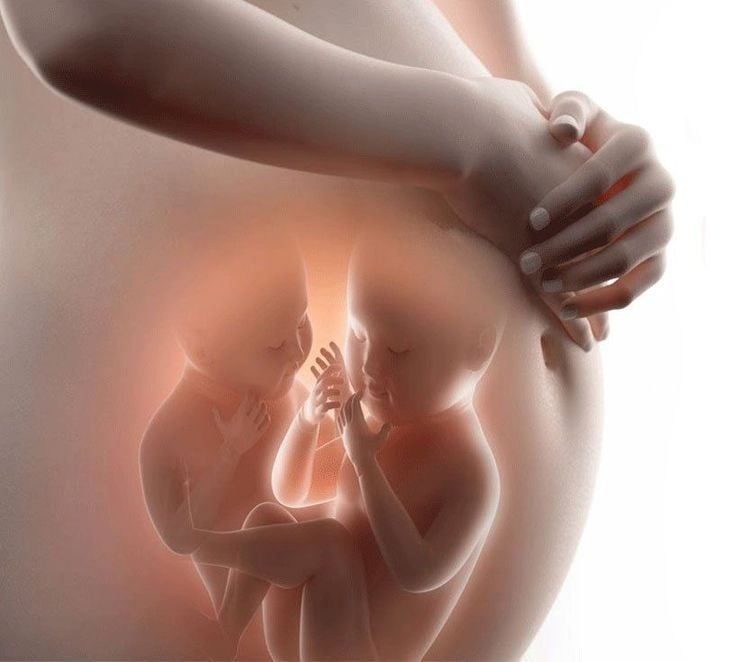
Khi thực hiện hỗ trợ phôi thoát màng có thể làm tăng nguy cơ song thai cùng trứng
This technique carries a risk of injury to the embryo during embryonic support. Although large lesions are rare, a few single blastomeres within the embryo may be affected in up to 1% of all operations. Several recent studies have shown that this does not affect the entire embryonic development. The implantation rate per embryo increases, thereby increasing the rate of multiple pregnancies when transferring multiple embryos. There may be unknown effects on the fetus and/or mother. Increased risk of identical twins due to manipulations on transparent membranes. Identical twins carry the same risks as multiple pregnancies, but also carry their own unique risk factors: transfusion syndrome, growth retardation in one or both fetuses. Scientific studies have shown that performing IVF with the help of embryonic drainage does not increase the risk of abnormalities in the fetus compared to the conventional IVF procedure.
Established in November 2014, up to now, Vinmec IVF fertility center has provided fertility support to over 1000 infertile couples with success rates over 45%-50%. This rate is equivalent to developed countries such as the UK, USA, Australia,...
The center gathers a team of leading experts in the field of obstetrics and gynecology nationally and internationally, trained in centers leading in the world such as in the US, Singapore, Japan, Australia and famous fertility centers in the world.
With high expertise and extensive experience, Vinmec IVF Center's experts are capable of synchronously and comprehensively deploying the most advanced assisted reproductive techniques today, helping realize the dream of becoming a parent of hundreds of families across Vietnam.
You can directly go to Vinmec IVF Reproductive Center for expert advice or contact 024 3974 3556 for support.




